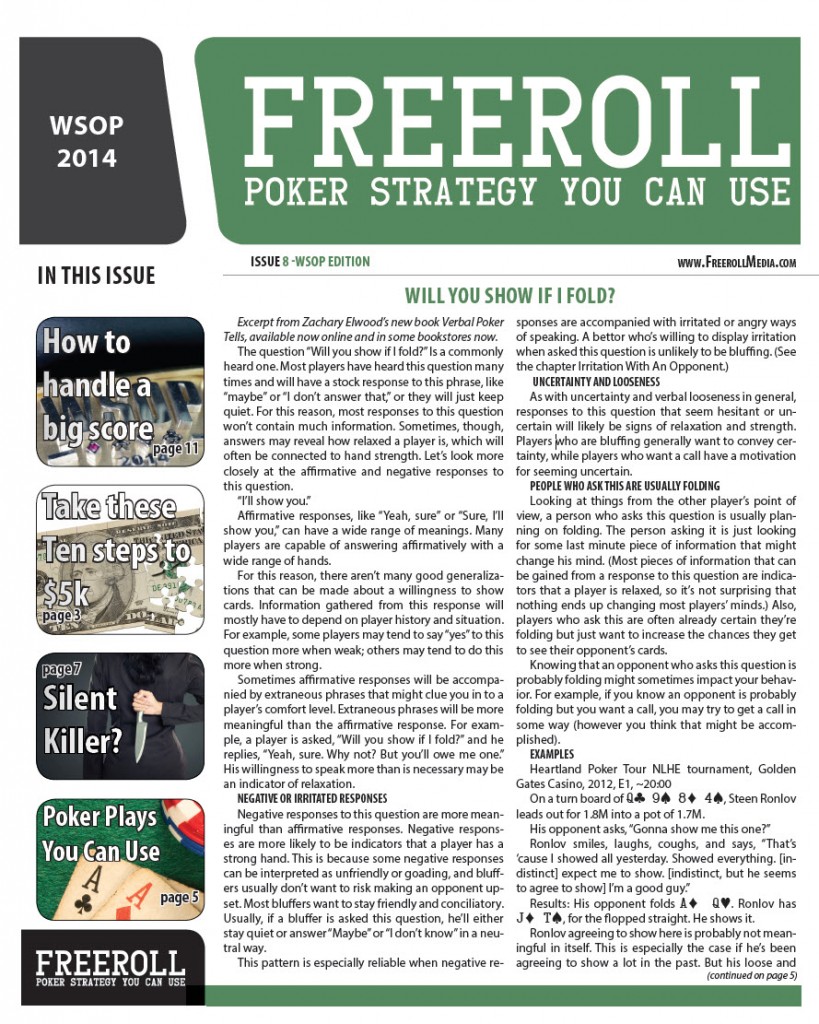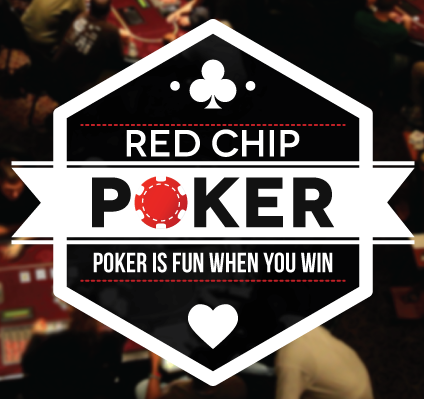Ambition Meets Contentment at the Felt
- By Owen Gaines
- December 20, 2013
- Comments Off on Ambition Meets Contentment at the Felt
“Hope deferred makes the heart sick, but a longing fulfilled is a tree of life.” – Proverbs 13:12, NIV
Reading through Facebook the other day, I noted a few posts from a specific friend. His comments always seem to have a common theme; they are littered with complaints and discontentment.
Unmet expectations often bring a person to a place of discontent and make them feel pain. Apparently, my Facebook friend is expecting something from life, and life is not delivering. Are his expectations reasonable? I’m not sure I can answer that. However, I did start to think about how this relates to poker.
You don’t have to spend much time at a poker table to observe deep discontentment in its participants.
“One frick’in time!” a player yells just as his flush draw fails to come in on the river.
Exposing his bluff, another player chides, “How do you call with that crap?!”
Apparently, these players are expecting something from the game and are seeing their desires go unfulfilled.
Dictionary.com defines contentment as being mentally or emotionally satisfied with things as they are.
Where is the place for contentment at the poker table? What should we expect as we sit down and post our blinds?
Many people have unrealistic expectations from poker. I believe this stems from a lack of understanding regarding the fundamentals of the game.
Imagine you’re in the big blind and get dealt AA. Do you have expectations? Should you? What will your expectations do for you? Now, everyone folds to the small blind. You’re holding your breath in anticipation. The small blind pauses for a second, then folds. The blinds are pushed your way. Are you disappointed? Should you be?
Let’s go back a couple seconds to your pause with bated breath. This time the small blind puts in a raise. You reraise, and he pushes all his chips in the middle. You quickly call. Do you have expectations? Should you? What will your expectations do for you?
 He flips over KK. What should you be expecting now?
He flips over KK. What should you be expecting now?
The safe flop shows 38Q. The dealer lingers, burns a card, and the turn carts a King. Ouch. The river conveys no help, and you watch your stack get pushed his direction. “Nice hand,” your opponent says. Are you disappointed? Your thoughts badger you…”I hate AA!”…”I never win with it!”
I’m sure you’ve experienced the turns of elation and despair while on the poker roller coaster. I believe these twists are jolting because we have unrealistic expectations from the game.
Let’s go back to getting all-in preflop with our AA versus KK. About 80% of the time, AA will win that confrontation. However, this means KK will win 20% of the time.
Imagine you hand a die to your friend and say, “See if you can roll a five.” He rolls the die, and sure enough, it lands a five. How impressed would you be? Probably not impressed, period. You may not even tell anyone it happened. However, your friend rolling a five is less likely than KK beating AA. Does that perspective help change your expectations as you get all-in with AA and watch your opponent flip over KK?
These observations do not mean we slouch in our poker chair while sipping a margarita. There’s room for intense ambition at the poker table.
Dictionary.com defines ambition as a strong desire for success, achievement, or distinction.
We need to separate what we can control and what we cannot control at the poker table. For those variables we cannot control, we need to be mentally or emotionally satisfied with things as they are. The strategic edge in poker is not found in what we cannot control; it’s found in what we can control.
Regarding the controllable variables, the best players of the game have high expectations and are never content. They are not mentally or emotionally satisfied with things as they are. These players have a strong desire for success, achievement, and distinction. They’re extremely ambitious.
What can you control in poker? The list is longer than most realize. Here are some examples.
- The size of the blinds in the game you play.
- The players against whom you choose to play.
- Your physical and mental state when you play.
- How much money you bring to the table.
- The seat you choose at the table.
- The cards you choose preflop.
- The betting decisions you make.
- The attention you give to the happenings at the table.
- How you handle yourself at the table.
- The amount of time and energy you spend away from the table learning and improving.
This list – and more – can be controlled by a player and allow ample room for a strategic edge over other poker players. These variables are the proper place for discontentment in poker.
When you are able to discern between what can be controlled and what cannot, you can properly adjust your expectations. When you change your expectations, you will experience less pain. When you experience less pain, you’re more likely to enjoy the game and play your best.




